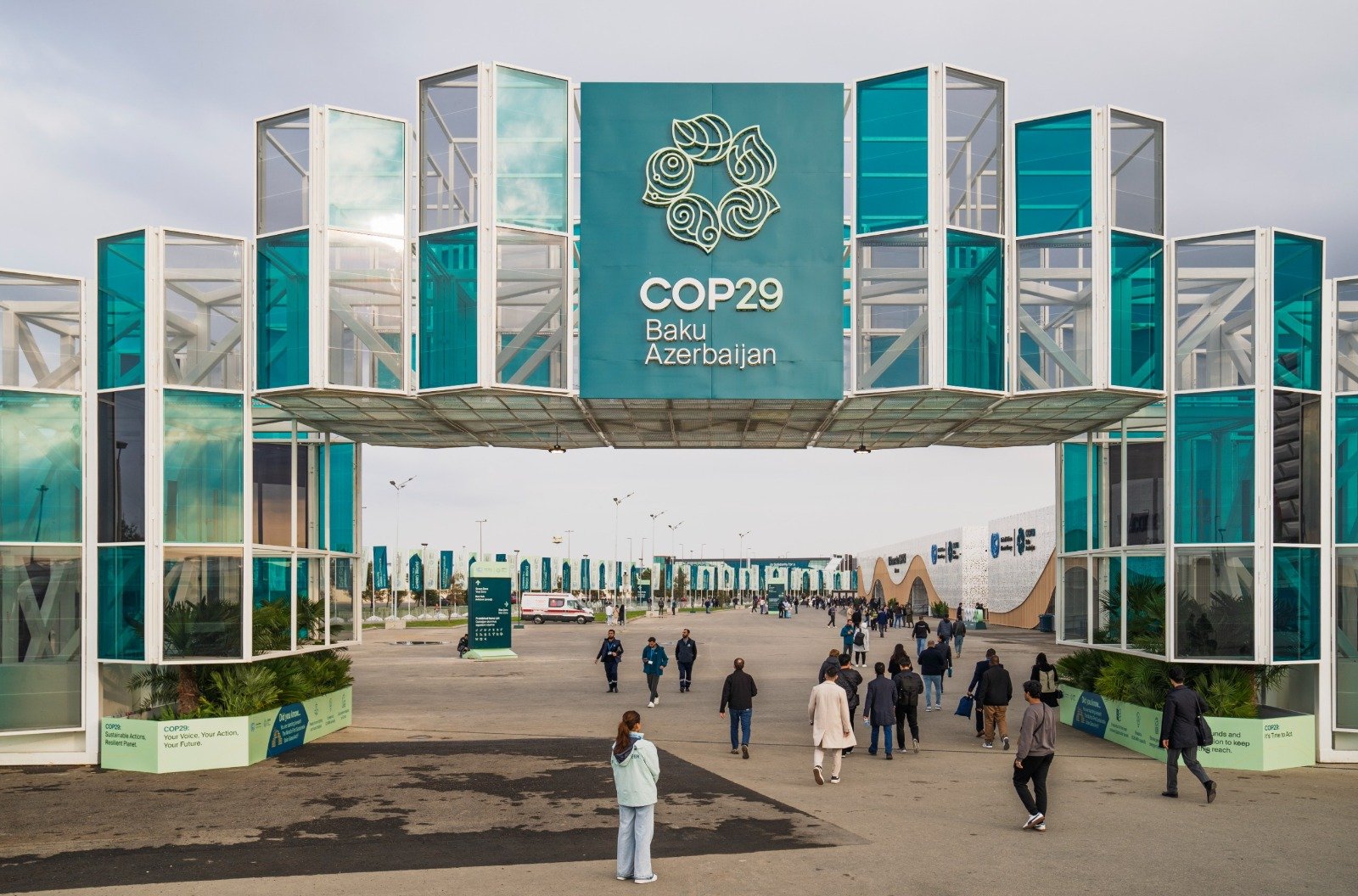At the 29th Conference of the Parties (COP 29) of the United Nations Framework Convention on Climate Change (UNFCCC), India and China have been vocal in their opposition to the climate change-related trade measures being proposed by developed countries, especially the European Union (EU). These measures, which include the introduction of Carbon Border Adjustment Mechanisms (CBAM), are seen by many developing nations as unfair and potentially harmful to their economies. This article explores the reasons behind the pushback from India and China, the mechanisms being proposed, and the potential impacts on global trade.
What Are Carbon Border Adjustment Mechanisms (CBAM)?
The Carbon Border Adjustment Mechanism (CBAM) is a policy initiative proposed by the European Union aimed at addressing carbon leakage in international trade. The idea behind CBAM is to impose a carbon tax or tariff on imported goods that have been produced using high-emission methods, thus incentivizing cleaner production methods and ensuring that European industries are not undercut by goods produced in countries with weaker environmental regulations.
For example, if a country like India produces steel using coal, which is a carbon-intensive process, and exports it to the EU, the steel could face additional tariffs under the CBAM. The EU claims this policy is necessary to protect its industries and ensure that global emissions are not merely shifted to countries with lax environmental standards.
Why Are India and China Opposed to CBAM?
India and China, two of the world’s largest developing economies, have expressed strong objections to the CBAM for several reasons. These nations argue that such policies disproportionately affect developing countries and undermine their efforts to grow economically while addressing climate change challenges.
1. Unfair Burden on Developing Countries
India and China argue that developed countries, such as those in the EU, have historically been the largest contributors to global emissions. Over the past century, developed countries have built their economies on carbon-intensive industries, whereas developing nations are still in the process of industrializing and improving living standards for their populations. These nations feel that it is unjust to place the bulk of the responsibility for reducing emissions on countries that are still striving to achieve basic economic development.
For instance, India and China are not just major producers of goods like steel and cement but also major consumers. These industries are key to their infrastructure and economic growth. The additional tariffs proposed under the CBAM would make it more expensive for these nations to trade with Europe, affecting their economies and reducing their competitive edge in global markets.
2. Lack of Financial and Technological Support
Developing nations like India and China argue that, if the developed world is serious about combating climate change, it should provide financial assistance and technological support to help them transition to greener energy sources. The burden of funding the green transition should not fall solely on developing countries, which often lack the financial resources and technological expertise to make the transition.
India and China believe that the current measures fail to acknowledge this fundamental imbalance. Instead of imposing tariffs and penalties, they argue that the EU should invest in cleaner technologies and provide financial assistance, as outlined in the Paris Agreement. Without this support, developing countries will find it increasingly difficult to meet global environmental standards.
3. Risk to Economic Development and Export Markets
The introduction of the CBAM poses a significant risk to developing economies, particularly in the context of global trade. For countries like India, which rely on exports of carbon-intensive goods, the additional tariffs could make their products less competitive on the international stage. This could hurt their exports and slow down their economic growth.
India and China have argued that such trade measures could limit their economic development by reducing their access to lucrative European markets. If tariffs are imposed on goods such as steel, cement, and aluminum, it could make these products more expensive in Europe, thereby reducing demand for them. This could create a cascading effect, resulting in lower production, fewer jobs, and slower economic growth.
Also Read: World Cities Report 2024: Cities Face Climate Risks, Funding Gaps
The Call for Balance: What Developing Countries Want
India, China, and other developing nations believe that a more balanced approach to climate change is needed—one that recognizes the historical emissions of developed countries and acknowledges the financial and technological gaps between developed and developing nations. Rather than implementing tariffs, developing countries propose a more cooperative approach that includes:
- Climate Financing: Developed countries should honor their commitment to providing $100 billion annually to support developing nations in addressing climate change. This money should be used for technology transfer, capacity building, and fostering a green transition in developing countries.
- Technology Transfer: Rather than penalizing developing countries for their emissions, developed countries should share clean energy technologies with them. This would help these nations transition to greener industries without sacrificing their economic growth.
- Flexible Carbon Targets: Developing countries argue that their carbon reduction targets should be more flexible, given their need for industrial growth. They should not be expected to meet the same standards as developed nations, especially when their per capita emissions are still much lower.
Also Read: India’s $1 Trillion Challenge: The High Cost of Moving Away from Coal
The Geopolitical Implications of Climate Trade Measures
The introduction of carbon tariffs is not just an economic issue—it is also a geopolitical one. India, China, and other developing nations fear that these trade measures could lead to increased protectionism and disruption of global supply chains. The global economy is highly interconnected, and measures like the CBAM could lead to trade wars and retaliatory tariffs.
Moreover, the possibility of other countries adopting similar mechanisms could create further complications for global trade. For example, the United States, Canada, and the UK have already indicated that they might introduce their own versions of carbon tariffs. This could lead to a situation where global trade is fragmented, with countries creating trade barriers based on environmental standards, thereby hindering international commerce.
Impact on Global Supply Chains
The global supply chain has already been under significant strain due to the COVID-19 pandemic, natural disasters, and political tensions. Climate-related trade measures could further disrupt these supply chains. For instance, if a natural disaster disrupts production in one country, it could lead to shortages and delays in the global market. As a result, countries might seek to relocate their industries closer to home or to neighboring nations to reduce the risk of disruptions.
What’s Next for COP29?
As COP29 continues, it is clear that climate-related trade measures will remain a contentious issue. India, China, and other developing nations are likely to continue pushing for changes to the proposed carbon tariffs. While the need for global climate action is urgent, the solution must be fair and equitable, taking into account the economic realities faced by developing countries.
The debate at COP29 is not just about how to address climate change; it is also about how to ensure that the transition to a greener world does not leave developing nations behind. The outcome of these discussions will have far-reaching implications for global trade, international relations, and the fight against climate change.
Conclusion
India and China’s resistance to climate change-related trade measures at COP29 reflects the deep concerns of developing nations about the fairness of these policies. While the need for action on climate change is undeniable, it is crucial that developed countries provide the necessary support to ensure that developing nations are not unfairly burdened. The challenge lies in finding a balanced approach that addresses both the climate crisis and the economic needs of countries still striving to grow and develop. Only through collaboration and a fair division of responsibility can we hope to tackle the global challenges of climate change effectively.
Follow US





